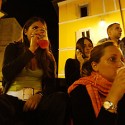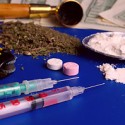The Holidays: Challenges and Survival Guide for Sober Alcoholics
Why are the holidays difficult for sober alcoholics?
The holidays can be a triggering and challenging time for sober alcoholics, particularly for those in early sobriety. But why? There are a variety of reasons and this time of year can prove to be emotionally charged even for non-alcoholics. The holidays can be bittersweet, in that while they may bring joy and celebration, they can also be like putting “Miracle Grow” on family dysfunction and unhealthy dynamics. Therefore, if drinking alcohol was the way in which an alcoholic coped emotionally with holidays in past years- it can be a difficult transition when they get sober.
For sober alcoholics who come from active alcoholic families, this time of year is generally rampant with heavy drinking that they may have been able to avoid the rest of the year. A sober family member can unintentionally hold a mirror up to their alcoholic family members and this can inevitably cause tension. The high-functioning alcoholic (HFA) in particular is able to keep many aspects of life intact. Therefore, relatives may not have realized the severity of his or her alcoholism and may minimize the problem or not understand why the HFAs need to be sober. Sober HFAs may be dodging drinks or surrounded by family members drinking socially or alcoholically and this inevitably can be a challenging dynamic to navigate.
The holidays are a time of socializing, work parties, excessive amounts of food, celebration and inevitably drinking. Being sober can often lead these individuals to feel left out or it may be a painful reminder them of the good ole’ days. Throughout the rest of the year they may be surrounded socially by a sober community or are able to set limits and boundaries around how much time they spend in drinking situations, they may not be able to avoid these environments during this time of year.
Many people compare their lives and families to others and to the depictions that they see in the media of the “perfect family”. For those who are single, divorced, or having family problems, the holiday season holds a magnifying glass up to these situations, leading many to reflect negatively on their life. As I sit here writing this blog a TV commercial came on stating that “This season is a time of celebration, family, good food…”- this images are powerful and they are everywhere. Therefore, it is important to counter these false images of perfection and remember that every family has issues and to have some acceptance of family flaws. Alcohol may have filled this emotional void for alcoholics and now that they are sober and alcohol has been removed from the equation it may lead them to feel vulnerable, raw and sensitive. It is important to note that there is a higher chance of relapse during the holidays and sober alcoholics and their loved ones should be mindful of this.
In addition to family holiday events, work and social holiday parties are a constant reminder to the sober alcoholic that they have to live and socialize in a different manner than those who can drink in safety. There are holiday functions that require attendance and it is important to have strategies in place that can help to prevent relapse and to minimize triggers. Here is a holiday “survival guide” for the sober alcoholic:
- Have an escape plan by bringing your own vehicle or figure out the available public transportation near the holiday event that will enable you to leave if you are feeling tempted to drink or uncomfortable.
- Ask another sober alcoholic to be “on call” for you to check in with during the event for additional support.
- Let someone whom you trust at the holiday event know that you may need additional support during this occasion or time of year.
- Find a tasty non-alcoholic beverage you can drink that will give you something to hold and may prevent people from offering you an alcoholic drink.
- Come up with a standard response as to why you are not drinking that may vary depending on the type of holiday event and if you want those in attendance to know you are sober: “I don’t drink anymore”, “I am not drinking tonight”, “I am on medication and cannot have alcohol”, “I am the designated driver tonight,” etc.
- Be choosy about the holiday events that you attend and avoid “people pleasing” by saying “yes” to events that you don’t need to nor don’t want to be at.
- Take care of yourself prior to these events: get enough sleep, eat regularly, exercise, relax, etc.
- Find new holiday activities and traditions that you may never have tried in the past which do not involve drinking alcohol (volunteer at a soup kitchen, go ice skating, have a sober get-together and gift exchange, see a movie, take a trip, etc.)
- Remember to create structure for yourself if you have time off (volunteer, exercise, make plans, got to mutual-help group meetings, therapy, etc.).
- Work extra hours if needed in order to distract yourself.
- Learn to say “no” if you do not want to attend an event.
- Put your sobriety first and realize that others may not understand what this entails, but that it is your number one priority.
- “Just say no” to rum cake!
- Attend extra mutual-help group meetings during this season (ie, A.A. has “alcathons” that involve 24 hours of meetings, food, socializing at designated locations on Thanksgiving Eve, Thanksgiving, Christmas Eve, Christmas, New Year’s Eve and New Year’s Day.
- Be honest with loved ones if you are having a hard time and let them know how to support you.
- Remember that “this too shall pass” and there is life after the holidays.
- No matter how you are feeling, just don’t drink!
source: Psychology Today


